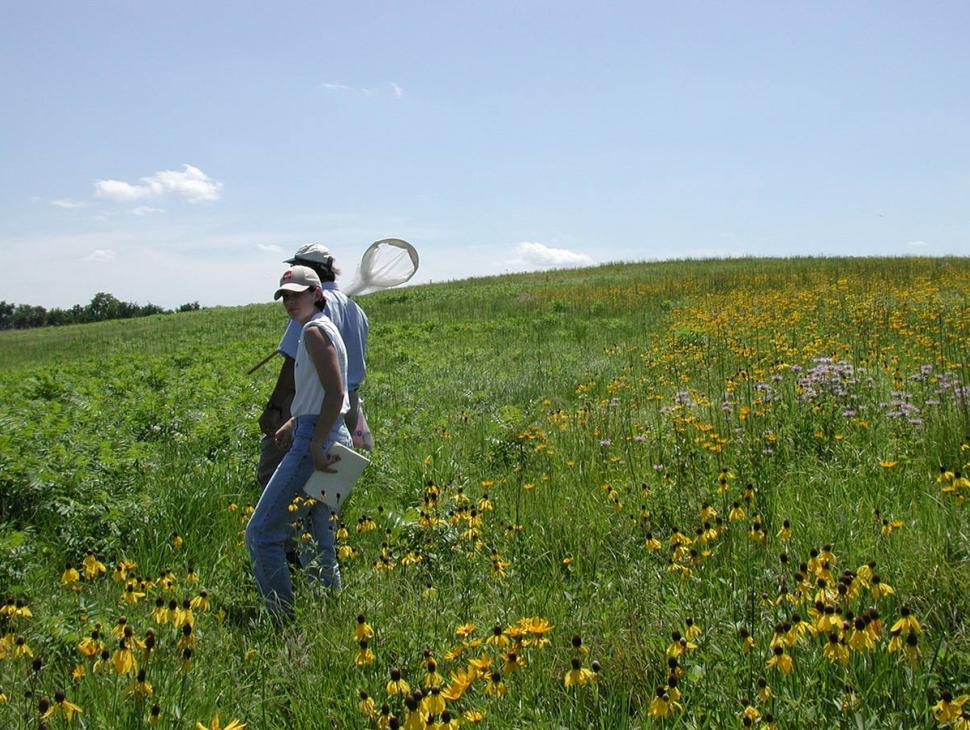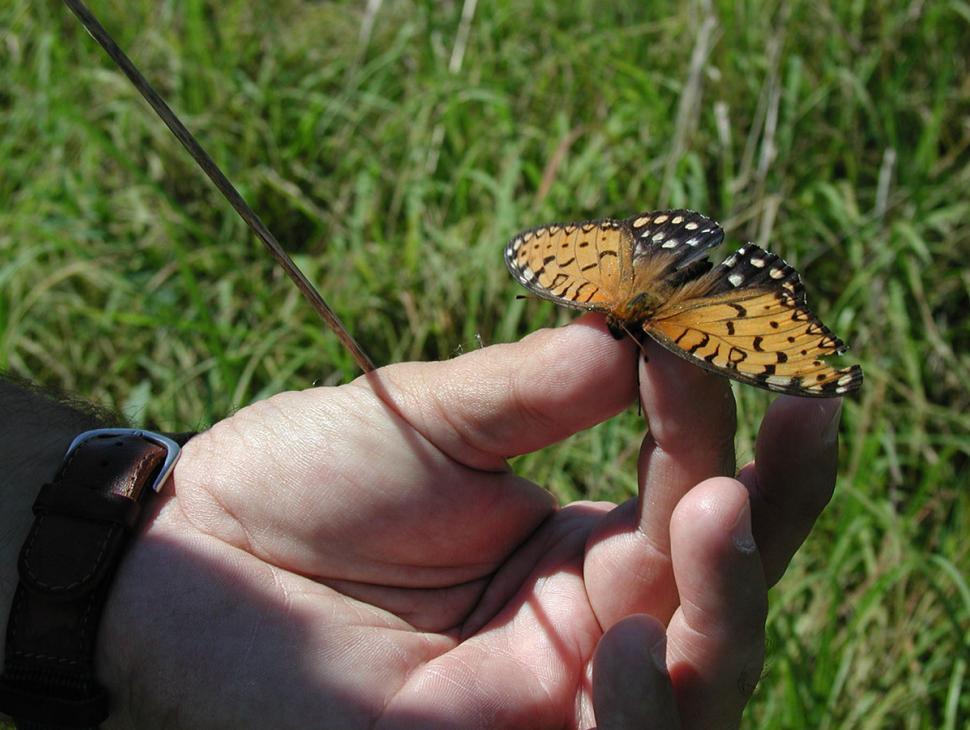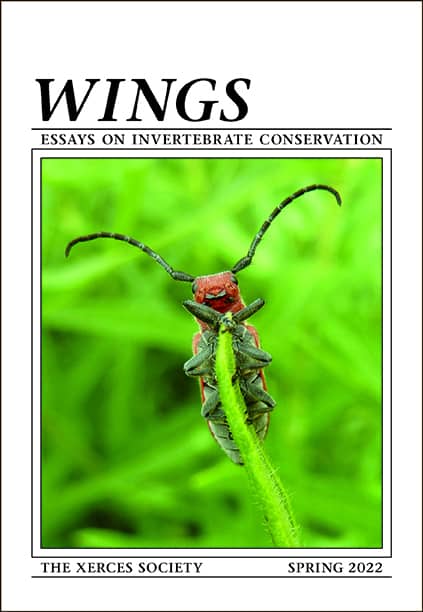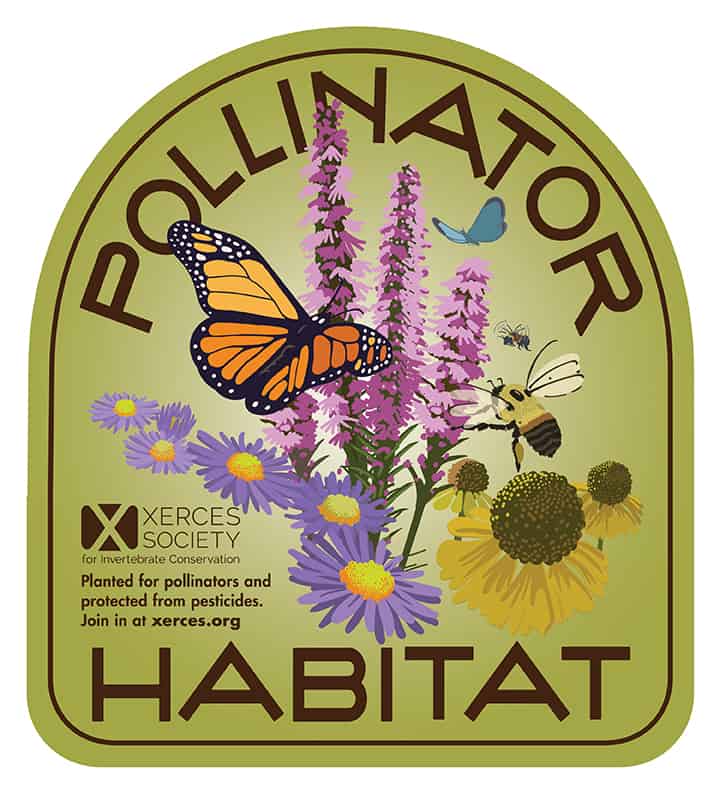Ted Burk, of Omaha, Nebraska, is a long-time Xerces member and a biology professor at Creighton University with 30 years of teaching and research. His passion lies in behavioral and conservation biology, especially of insects. He is actively engaged in community science projects with his students to collect data to support insect conservation. Burk runs regular butterfly surveys at several nature preserves, and has accumulated an impressive 25 continuous years of data, recording 100,000 butterfly observations and 20,000 butterfly flower visits to prairie flowers!
Burk's fascination with insects began in his childhood. He grew up in a small town in rural Kansas, and remembers exploring the flora and fauna he could find along his father's mail delivery route. One of Burk’s first experiences with studying insects in particular came via the youth organization 4-H, where he completed several entomology projects.
Later, Burk grew his curiosity about what these animals were doing, and why, into a career as a scientist of insect behavior. After receiving his undergraduate degree at the University of Kansas, Burk traveled to the University of Oxford, where, in 1979, he completed his Doctorate of Philosophy under the mentorship of evolutionary biologist Richard Dawkins. For his thesis, Burk investigated the social behavior of crickets, and in the following years, he would go on to work with many other insects, including katydids, firefly beetles, and various kinds of flies.
When asked about his favorite species, Burk’s admiration for insects’ fascinating behaviors is clear. “My favorite butterfly is the Gray Hairstreak; I love its subtle colors and predator-distracting ‘false head’. My favorite insects in general are Neoconocephalus cone-headed katydids, who I studied in Florida and Nebraska and whose singing males in the southeastern US are heavily preyed upon by a fascinating acoustically-orienting tachinid fly, Ormia lineifrons,” he explained.
However, in 1998, Burk made a major change in his career: he realized that conservation of these wonderful animals was his highest priority. This revelation led him to shift his focus towards the study of butterfly populations and their interactions with prairie flowers. Burk noticed how changes in butterfly populations are an excellent indicator of the overall health of an ecosystem. With his new research, Burk aimed to raise awareness about the importance of invertebrate conservation and the alarming decline of butterfly species across the United States.
For over two decades, Burk has conducted rigorous fieldwork, meticulously documenting butterfly populations and behavior in tallgrass prairies of eastern Nebraska. For 20 weeks each and every year, Burk walks the same standard path (approximately 2 km) and records all butterflies spotted, and all visits of a butterfly to a flower, within 5 meters on either side. This type of long-term research is very rare in science. Burk’s work has revealed insights into butterfly behavior and the critical role of native prairie plants, particularly tall thistles, in supporting butterfly populations.
Burk’s dedicated research has made a big impression within the invertebrate conservation community. “Ted’s data is so unique. He’s been invaluable in informing our understanding of important nectar plants for monarchs in eastern Nebraska, for example,” said Jennifer Hopwood, a senior pollinator conservation specialist at the Xerces Society.
Beyond his contributions to research, Burk says his greatest joy lies in mentoring and inspiring future generations of conservationists. Indeed, Burk doesn’t do his butterfly surveys alone. He works alongside his students at Creighton University, giving them the firsthand experience that can ignite a passion for insects and the prairies they call home.
Burk even has this effect on passersby, said Hopwood: “I’ve watched people approach Ted during his butterfly surveys curious about why he is wading through tallgrass rather than following the trails, and they come away with a new interest in butterflies. Ted inspires everyone to take an interest in butterflies.”
Through his commitment to conservation, Burk’s work exemplifies the essence of environmental stewardship, inspiring us all to cherish and protect the intricate web of life that surrounds us.







